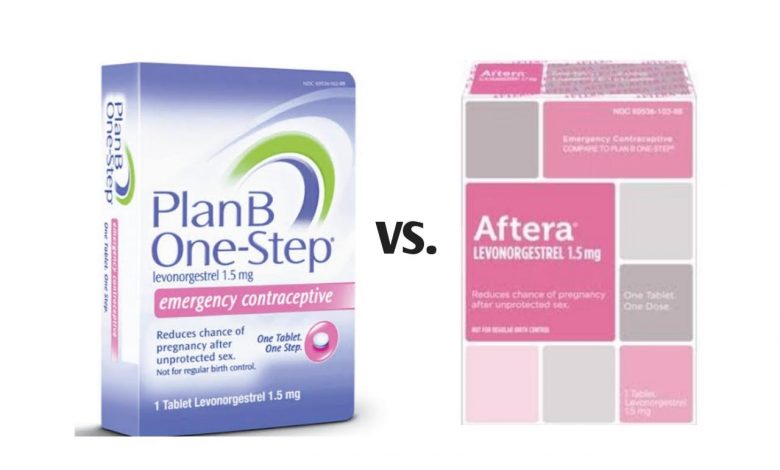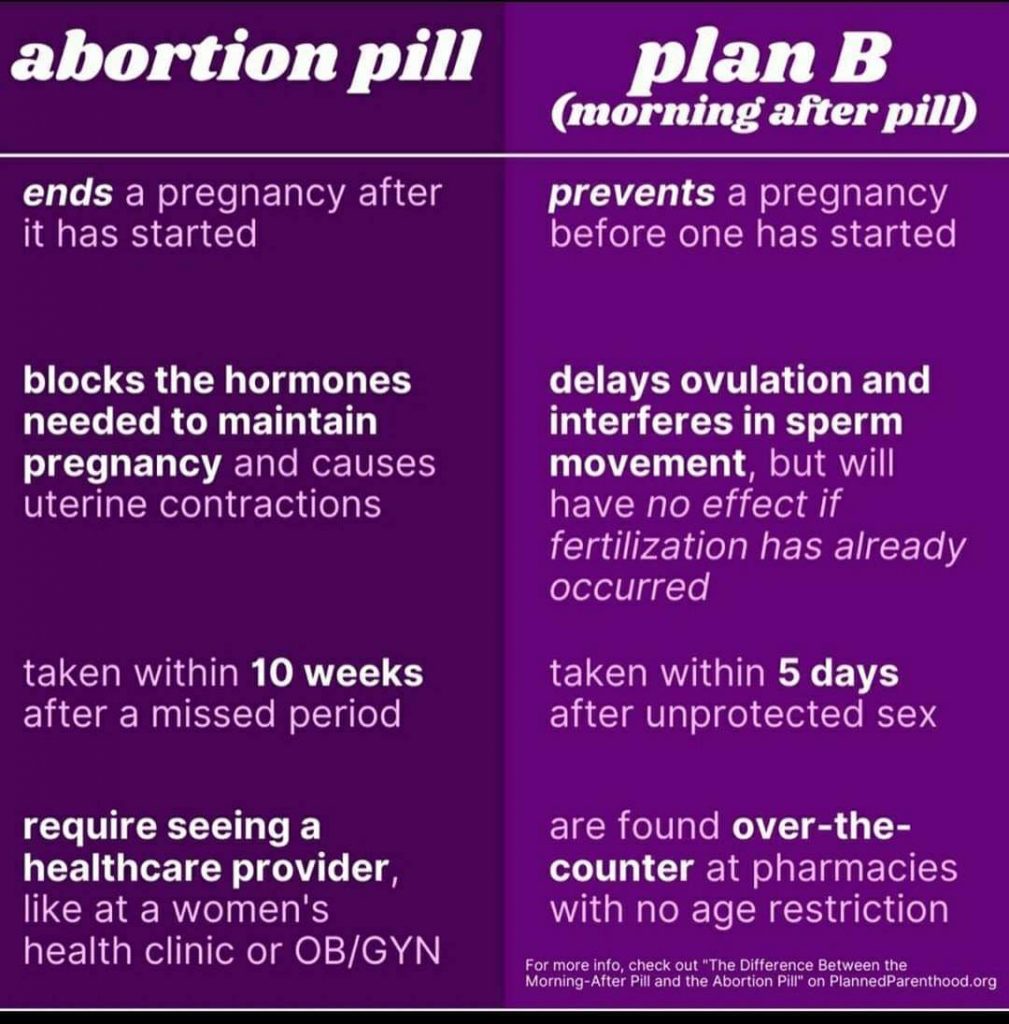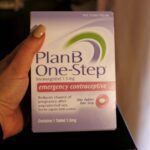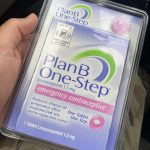Aftera vs Plan B: Differences, Similarities, Which is More Effective, Prices

Unintended pregnancies are pregnancies that are mistimed, unplanned or unwanted at the time of conception. Sexual activity without the use of effective contraception through choice or coercion is the predominant cause of unintended pregnancy. Worldwide, the unintended pregnancy rate is approximately 45% of all pregnancies, but rates of unintended pregnancy vary in different geographic areas and among different sociodemographic groups.
Most unintended pregnancies result from not using contraception or from not using it consistently or correctly. Among women reporting unintended pregnancy, 36 % were not using a contraceptive method prior to conception according to studies.
The earliest forms of birth control, as well as abortion, were found in Ancient Egypt and Mesopotamia as far back as 1850 BC. Papyrus scrolls were found to contain directions on how to make birth control, using honey, acacia leaves, and also lint as a form of cervical cap to prevent sperm from entering the womb. Today there are over 10 types of contraceptive methods a woman can use to prevent pregnancy.
What Is Emergency Contraception?
Emergency contraception is a way to prevent pregnancy after unprotected sex. Often called the morning-after pill, emergency contraceptive pills (ECPs) are pills that can be taken up to 120 hours (5 days) after having unprotected sex. Some types of emergency contraception work best when taken within 72 hours (3 days) after intercourse. Emergency contraceptive pills work by delaying ovulation (the release of an egg during the monthly cycle). If fertilization and implantation have already happened, ECPs will not interrupt the pregnancy.
What is Plan B?
Plan B is an emergency contraceptive pill and a backup method to birth control. It comes in the form of levonorgestrel pills (2 pills of 0.75 mg in each pill or 1 pill of 1.5mg) that are taken by mouth after unprotected sex. Levonorgestrel is a synthetic hormone used in birth control pills for over 35 years. Plan B can reduce a woman’s risk of pregnancy when taken as directed if she has had unprotected sex. Plan B contains only progestin, levonorgestrel, a synthetic hormone used in birth control pills for over 35 years.
What is Aftera?
Aftera is also a brand of levonorgestrel used as an emergency contraception method that helps prevent pregnancy after birth control failure or unprotected sex. It is a backup method of preventing pregnancy and should not be used as regular birth control.
Is Aftera and Plan B the same thing?
Yes, Aftera and Plan B are both brands of levonorgestrel, a medication first studied in humans in 1970, and was introduced for medical use in Germany as a combined birth control pill with ethinylestradiol under the brand name Neogynon in August 1970.
Do Aftera and Plan B work the same way?
Yes, both Aftera and Plan B contain the same hormone that works by preventing ovulation during your menstrual cycle. It also causes vaginal fluid to become thicker to help prevent sperm from reaching an egg.
Does Plan B work faster than Aftera?
Despite anecdotal claims on many platforms, Plan B and Aftera work in a similar fashion. Once absorbed into the bloodstream, which usually takes a couple of hours, levonorgestrel starts to affect the ovaries or uterine lining. It is effective within 72 hours (3 days) of unprotected sex. Levonorgestrel 1.5 mg tablets is not effective as a regular long-term method of contraception and will not always stop a pregnancy (not 100% effective). It should not replace regular, long-term contraception.

Can I use Aftera or Plan B for abortion?
No, Aftera and Plan B are not medications for abortion. It won’t stop a pregnancy that’s already started. If you’re already pregnant, contact your healthcare provider to discuss abortion options. Plan B and Aftera also won’t protect against sexually transmitted infections (STIs).
How should I take Aftera and Plan B?
Follow all directions on the drug label or your prescription label. Do not use Aftera or Plan B in larger or smaller amounts or for longer than recommended. In general, you should take one tablet of Aftera or Plan B orally as soon as possible within 72 hours after unprotected intercourse or a known or suspected contraceptive failure. Efficacy is better if the tablet is taken as soon as possible after unprotected intercourse. The second tablet should be taken 12 hours after the first dose. Plan B can be used at any time during the menstrual cycle. If vomiting occurs within two hours of taking either dose of medication, consideration should be given to repeating the dose.
Don’t have sex until you start another method of birth control. Aftera or Plan B doesn’t offer lasting protection from pregnancy. If you have unprotected sex in the days and weeks after taking the morning-after pill, you’re at risk of becoming pregnant. Be sure to begin using or resume use of birth control.
Aftera vs Plan B: which produces more side effects?
Since they contain the same active ingredients, Aftera and Plan B will produce similar side effects which includes the following:
1. Heavier period the next time
This is the most common side effect of Aftera and Plan B. About 1 in every 3 women will notice their next period is heavier than usual. This shouldn’t be dangerous and should only affect your next period. But it can be annoying.
2. Nausea
Nausea is also common with Aftera and Plan B. No one likes that feeling of having to throw up. Taking your dose with food can help lessen or prevent this side effect. If you throw up within 2 hours of taking Plan B, you should take another dose.
3. Lower stomach pain
Pain in the lower abdominal area happens about as often as nausea. It’s possible you may experience them together. This is generally mild and passes quickly.
4. Tiredness (fatigue)
Feeling tired after taking Aftera and Plan B is also pretty common. As with the side effects above, this shouldn’t be severe. Be kind to your body and take it easy if you feel fatigued. It’s temporary and should go away.
5. Headache
Headache is a common side effect of Aftera and Plan B. Headache is estimated to happen to about 10% of those who take Aftera and Plan B.
6. Dizziness
While less common than the side effects already mentioned, dizziness can happen with Aftera and Plan B. It’s possible you could experience this along with other side effects, like nausea or headache. Just keep in mind that it should get better relatively quickly.
7. Breast tenderness
Breast pain or discomfort is a common side effect of many birth control methods. That’s because some people are more sensitive to hormones than others. If this happens to you, dress comfortably and avoid tight-fitting items around your chest area until the side effect passes.
Get emergency medical help if you have signs of an allergic reaction including hives; difficulty breathing; swelling of your face, lips, tongue, or throat.
Call your doctor or seek emergency medical help if you have severe pain in your lower stomach or side. This could be a sign of a tubal pregnancy (a pregnancy that implants in the fallopian tube instead of the uterus). A tubal pregnancy is a medical emergency.
Aftera vs Plan B: Which is cheaper?
When it comes to price, Aftera is more affordable than the brand Plan B. The average price of Aftera is around $37.24 while Plan B One-Step usually costs between $40 to $50. Generics like Take Action, My Way, Option 2, Preventeza, My Choice, and EContra generally cost about $11-$45.





